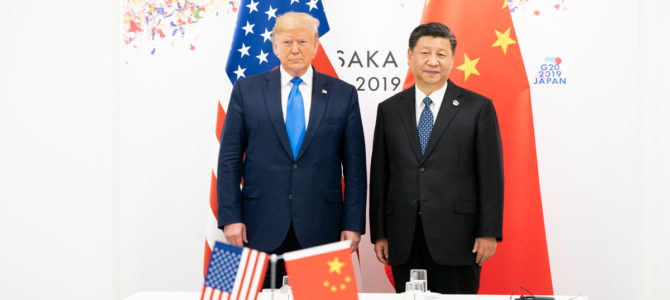
As the COVID-19 pandemic spreads worldwide, it continues disrupting the lives of everyone in China, the United States, and most other nations. Since I spent years in the film industry working closely with China, and am set to release my book, “Feeding the Dragon: Inside the Trillion Dollar Dilemma Facing Hollywood, the NBA, & American Business” in July, journalists, peers, and friends have asked for my views on every aspect of the outbreak.
There are so many layers to the story, and even more unknowns. Speculation is irresponsible, and diving into the micro will only create confusion. That’s why I always go back to the important macro lessons of my book—what drives the decisions of the Chinese Communist Party.
First, the Chinese government wants their 1.4 billion people just happy enough that they don’t revolt. Second, the CCP can achieve that by creating jobs and a larger middle class through strong economic growth. Third, they can foster populace contentment by orchestrating strategic public narratives through the Propaganda Ministry.
The COVID-19 outbreak severely damaged the Chinese government’s ability to accomplish all three. Therefore, the CCP’s biggest priority is to fix that. As witnessed, the CCP is suddenly insistent on getting people back to work, restarting factories, opening retail, forcing the People’s Bank of China to take drastic actions, and forbidding investors from betting against an economic recovery. These all aid the second objective above.
With each of those cogs in China’s economic engine falling into place, China’s Propaganda Ministry needs to promote them to their populace. “China is back on-line!” is the key theme, and that occurs through symbolic means—pushing factories to billow smoke into the sky, encouraging cars on the road, and opening movie theaters across the country—or through tangible stimulus measures such as loosening credit, lowering reserve requirements, and providing large-scale fiscal stimulus. Getting the gears of their high-growth economy moving again quickly is a feat necessary in both practical and symbolic terms for maintaining the public’s confidence.
But more needs to be done to keep the 1.4 billion Chinese content. The Party also has to avoid blame for the outbreak in the first place—and the potential for such blame to land squarely on the CCP lurks large. Internally, there have been many criticisms that Beijing acted too slowly and is largely to blame for the virus’s spread.
Externally, the message is the same. The world is blaming the Chinese for the global disruption created by COVID-19’s spread, and the war of words is rapidly escalating, especially from the U.S. government. As a result, the narrative coming from Beijing is one of deflection and self-preservation. They are insisting COVID-19 came from the outside, and adamant that their efforts slowed the contagion so the rest of the world had time to prepare.
I’m not agreeing with Beijing’s rush to force its economy back online with the uncertainties of further COVID-19 spread so obvious, nor am I agreeing with their ongoing it-wasn’t-us propaganda campaign. Instead, I’m simply reiterating the three lessons from above and throughout my book. Understanding China’s point of view and motivations from the 30,000-foot level helps us understand why they do the things they do. Such awareness gives us the sound foundation needed to properly develop an effective and strategic response.
That strategic American response is more crucial now than ever. I truly fear where the bilateral relationship is going. Once the COVID-19 crisis comes to pass, the U.S.-China relationship could enter a Cold War phase. U.S. leaders instigating disputes by labeling COVID-19 in derogatory ways, or the CCP spreading misleading
Even though I’m growing more hawkish daily, I still must stress the importance of looking at China as a massive opportunity both politically and economically after this crisis passes. China hawks should keep in mind that with every American product and service monetizing China’s massive market, American influence goes with it.
Each time the Chinese watch a Hollywood movie, cheer during an NBA game, study at an American college, drive an American car, or run in a pair of Nike shoes, they are touched by the subtle soft power of ingenuity, initiative, democratic principles, and culture from Americans. Economically, the growing Sino-consumption of American products and services creates jobs and increases our nation’s gross domestic product.
I implore steadfast hawks to recognize this opportunity. The continued bilateral exchange of culture and commerce can benefit Americans greatly. Although we need to be more strategic and cognizant of underlying CCP agendas moving forward, that very mission is the underlying theme of my book, and it will always be what drives me. I sincerely believe the fate of the world depends on it. Stay healthy and safe through these challenging times. Godspeed.









